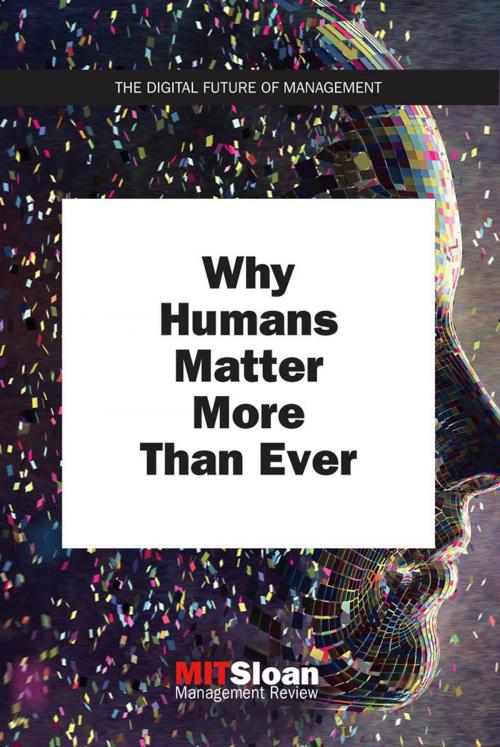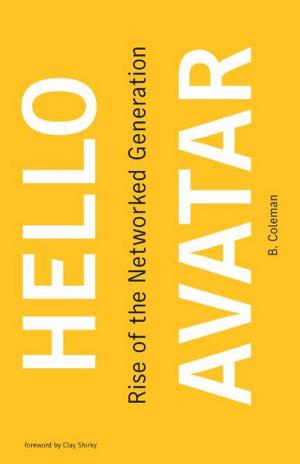Why Humans Matter More Than Ever
Nonfiction, Science & Nature, Technology, Social Aspects, Business & Finance, Management & Leadership, Management| Author: | MIT Sloan Management Review | ISBN: | 9780262355025 |
| Publisher: | The MIT Press | Publication: | July 26, 2019 |
| Imprint: | The MIT Press | Language: | English |
| Author: | MIT Sloan Management Review |
| ISBN: | 9780262355025 |
| Publisher: | The MIT Press |
| Publication: | July 26, 2019 |
| Imprint: | The MIT Press |
| Language: | English |
Experts offer strategies for managing people in technocentric times.
In these technocentric times, it is more important than ever to manage people well. Companies—employees and managers—may feel overwhelmed by the never-ending disruptions caused by new technologies. This volume in the Digital Future of Management series shows why we should step back, take stock, and seize just a bit more control over how our world is evolving. In Why Humans Matter More Than Ever, management experts from both industry and academia offer strategies for managing people in our brave new digital world.
The contributors explain how new technologies, even the most sophisticated artificial intelligence agents, depend on human collaboration. Companies need to develop rules, principles, and clear ethical guidelines that structure smart object–human interactions. Moreover, in a world filled with technology distractions, we must learn to how to manage our most valuable personal resource: our attention. Leaders need to step up to prepare their organizations for the evolution of work, showing them how to adapt, be more collaborative, and learn new skills. As virtual collaborations take place across professions, locations, and industries, we must adopt the best practices in virtual communication. Finally, going beyond empathy and curiosity, leaders should be self-aware enough to remind themselves of what they may be missing—even the best managers don't know everything.
Contributors
Lynne Andersson, Robert D. Austin, Catherine Bailey, Kathryn M. Bartol, Daniel Han Ming Chng, Chris DeBrusk, Arati Deo, Kishore Durg, Lauren Eskreis-Winkler, Mallika Fernandes, Ayelet Fishbach, Fritz Fleischmann, Kristen Getchell, Bhaskar Ghosh, Brad Gilbreath, Rob Gleasure, Sergey Gorbatov, Lynda Gratton, N. Sharon Hill, Beth Humberd, Bala Iyer, Tae-Yeol Kim, Frieda Klotz, Angela Lane, Scott Latham, Thomas W. Malone, Daniel McDuff, Alain Pinsonneault, Yasser Rahrovani, Fabrizio Salvador, Amanda Shantz, Antti Tenhiälä, Jan vom Brocke, Eoin Whelan
Experts offer strategies for managing people in technocentric times.
In these technocentric times, it is more important than ever to manage people well. Companies—employees and managers—may feel overwhelmed by the never-ending disruptions caused by new technologies. This volume in the Digital Future of Management series shows why we should step back, take stock, and seize just a bit more control over how our world is evolving. In Why Humans Matter More Than Ever, management experts from both industry and academia offer strategies for managing people in our brave new digital world.
The contributors explain how new technologies, even the most sophisticated artificial intelligence agents, depend on human collaboration. Companies need to develop rules, principles, and clear ethical guidelines that structure smart object–human interactions. Moreover, in a world filled with technology distractions, we must learn to how to manage our most valuable personal resource: our attention. Leaders need to step up to prepare their organizations for the evolution of work, showing them how to adapt, be more collaborative, and learn new skills. As virtual collaborations take place across professions, locations, and industries, we must adopt the best practices in virtual communication. Finally, going beyond empathy and curiosity, leaders should be self-aware enough to remind themselves of what they may be missing—even the best managers don't know everything.
Contributors
Lynne Andersson, Robert D. Austin, Catherine Bailey, Kathryn M. Bartol, Daniel Han Ming Chng, Chris DeBrusk, Arati Deo, Kishore Durg, Lauren Eskreis-Winkler, Mallika Fernandes, Ayelet Fishbach, Fritz Fleischmann, Kristen Getchell, Bhaskar Ghosh, Brad Gilbreath, Rob Gleasure, Sergey Gorbatov, Lynda Gratton, N. Sharon Hill, Beth Humberd, Bala Iyer, Tae-Yeol Kim, Frieda Klotz, Angela Lane, Scott Latham, Thomas W. Malone, Daniel McDuff, Alain Pinsonneault, Yasser Rahrovani, Fabrizio Salvador, Amanda Shantz, Antti Tenhiälä, Jan vom Brocke, Eoin Whelan















